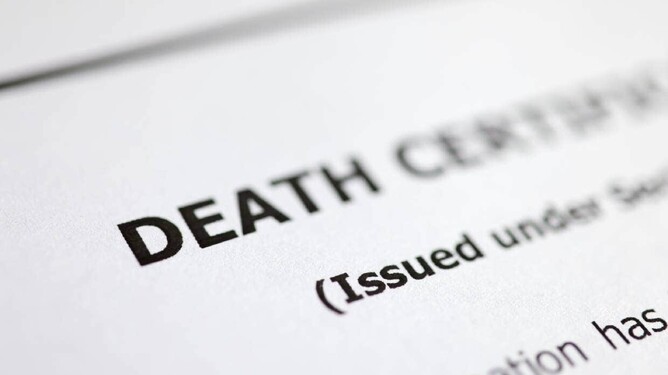Important things you need to know for Death Certificates
At Gateway Funeral Services, we understand that many people are unfamiliar with the process of obtaining a death certificate and the significance behind it. We believe it is crucial to be aware of the following key points:
Understanding the Death Certificate:
Familiarise yourself with the requirements and procedures involved in obtaining a death certificate.
This includes preparing, writing, or consulting a funeral director to create a pre-death plan.
Additionally, it is important to know who the executor is.
Medical Cause of Death:
The Medical Certificate of Cause of Death (HP4720) form is necessary for individuals over 28 days old.
A nurse practitioner or medical practitioner must complete and sign this certificate, which should then be promptly given to the funeral director or the person in charge of the body.
Death Certificate:
The death certificate is used to register the death with Births, Deaths, and Marriages.
Typically costing $33, this form is usually completed by the Funeral Director.
Information Required for the Death Certificate:
Biographical details such as the complete name and maiden name of the deceased person, their age, date of birth, and date of death.
Additionally, information about children, including their ages and gender, as well as the full names and occupations of the deceased person’s parents, is required.
Importance and Timing:
The death certificate cannot be lodged until after cremation or burial and may take 7-10 days to be confirmed.
Without this certificate, you can’t conduct various legal matters such as dealing with wills, closing bank accounts, stopping pensions, arranging travel purposes, or taking bereavement leave.
It is good to know that you need to wait for the completion of the death certificate to proceed with these activities.
Making the Process Smoother:
To expedite the process and minimize delays with the funeral director, consider recording your choices and preferences in advance.
Having a plan in place and discussing it with the person in charge or the funeral director can greatly facilitate matters for everyone involved during the grieving process.
Executor and Decision-Making:
It is important to note that the enduring power of attorney ceases upon a person’s passing, and the executor assumes decision-making responsibilities.
Sometimes, this responsibility defaults to a lawyer.
Selecting an executor who will honour your wishes is crucial. It may not always be a family member but could be someone like a justice of the peace or lawyer to ensure practicality and prevent any potential conflicts based on location or personal relationships.
We hope this information helps you navigate the process of obtaining death certificates and understanding their significance. At Gateway Funeral Services, we are here to support you during this challenging time.




